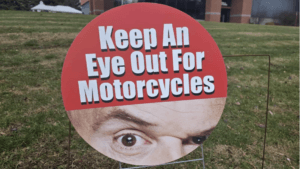The digital landscape is abuzz with news of a significant legal battle brewing between WordPress and WP Engine. This conflict has not only captured the attention of the tech community but also raised important questions about the implications of such disputes on the open-source ecosystem. As we delve into the details, it becomes clear that the outcome could have far-reaching effects on the future of both companies and the WordPress community at large.
Background of the Dispute
The conflict began when WP Engine, a leading managed WordPress hosting provider, filed a lawsuit against WordPress, Automattic (the parent company of WordPress), and its co-founder and CEO, Matt Mullenweg. The lawsuit centers around allegations of trademark violations and claims that Mullenweg extorted money from WP Engine. In a Reddit post, Mullenweg claimed that WP Engine’s legal actions and public statements threaten the integrity of the WordPress community, portraying themselves as victims in a narrative that is still unfolding.
According to reports, WP Engine’s attorney has accused Mullenweg of attempting to secure a significant financial settlement before his keynote speech at the recent WordCamp US Convention. The attorney described this as a “covert demand” that placed undue pressure on the company, further alleging that Mullenweg’s conduct was “disgraceful” and intended to harm WP Engine’s business reputation within the WordPress ecosystem.
Key Allegations
- Trademark Violations: WP Engine alleges that Automattic has infringed on its trademarks, which raises critical questions about brand identity and the ownership of key terms associated with the WordPress platform.
- Extortion Claims: WP Engine’s legal team claims that Mullenweg made threatening statements, suggesting that if the company did not comply with his financial demands, he would adopt a “scorched earth” approach against them within the community. This assertion indicates a breakdown of trust and collaboration, which are vital to the success of open-source projects.
- Public Statements: Mullenweg’s comments at the WordCamp US Convention have been described as misleading and damaging to WP Engine’s reputation, with the company arguing that these statements constituted actionable wrongdoing.
Implications for the WordPress Community
The ongoing dispute poses several challenges and concerns for the WordPress community:
- Trust and Collaboration: Open-source projects thrive on collaboration and trust among contributors, developers, and companies. This legal conflict threatens to erode that trust, leading to a more fragmented community where companies may become wary of one another.
- Innovation Stifling: Legal battles can divert attention and resources away from innovation and improvement. Instead of focusing on enhancing the platform and user experience, companies may allocate funds to legal defenses, which could stifle the creative process necessary for progress.
- Brand Identity and Market Competition: The dispute brings to light the issues surrounding brand ownership and the use of terms integral to the WordPress ecosystem. As WP Engine and Automattic navigate this legal quagmire, the community must grapple with the implications of brand identity and market competition.
- Potential for Precedent: The outcome of this case could set a significant precedent for future disputes involving trademark rights within the open-source community. Should WP Engine prevail, it may embolden other companies to pursue legal action in similar circumstances, further complicating the landscape for developers and businesses alike.
Community Reactions
The reactions from the WordPress community have been mixed, with some expressing support for Mullenweg and his vision for WordPress, while others have sided with WP Engine. The case has ignited passionate discussions across forums and social media platforms, reflecting the deep-seated loyalty many users feel toward the WordPress brand and the companies that support it.
Some community members argue that Mullenweg’s actions are necessary to protect the WordPress ecosystem from perceived threats. They contend that, as the co-founder of WordPress, Mullenweg has a responsibility to ensure that the platform remains accessible and beneficial to all users. Others view the lawsuit as an unnecessary escalation that could ultimately harm the community and its members.
Developers React to Plugin Changes
The recent decision by WordPress.org to take control of a major WP Engine plugin to “remove commercial upsells and address a security issue” has generated significant concern among developers. Matt Mullenweg, cofounder and CEO of Automattic, announced the update, now known as “Secure Custom Fields,” a fork of the Advanced Custom Fields (ACF) plugin.
While Mullenweg did not specify the details of the security issue, he cited point 18 of the plugin directory guidelines, which allows WordPress to modify or remove plugins without developer consent. This move comes in light of a lawsuit filed by WP Engine against Mullenweg and Automattic, further eroding trust within the developer community. (The verge)
As a result, many developers are feeling apprehensive, with some, including Bill Erickson, the creator of the Display Posts plugin, deciding to stop using WordPress.org for their updates. This development highlights a growing divide within the WordPress community, as developers consider the implications of these changes for their projects and the overall ecosystem. (Reddit)
What’s Next?
As the legal proceedings unfold, the WordPress community will be closely monitoring developments. Both parties have expressed their commitment to resolving the dispute, but the path forward remains uncertain. The potential for an out-of-court settlement exists, but if the case goes to trial, it could take months or even years to reach a resolution.
In the meantime, developers and users alike will be looking for guidance on how to navigate the implications of this dispute. The legal ramifications could affect everything from branding strategies to the way companies collaborate within the WordPress ecosystem.
Conclusion
The dispute between WordPress and WP Engine serves as a stark reminder of the challenges that can arise in the world of open-source software. As the community grapples with the implications of trademark rights and business ethics, it’s essential for all stakeholders to remain engaged and informed. Open dialogue and collaboration will be crucial in mitigating the impact of this dispute on the broader WordPress ecosystem.
As the situation develops, it is clear that the outcome will shape the future of both companies and potentially redefine the dynamics of the WordPress community. Stakeholders will need to navigate these challenges carefully, fostering an environment of trust and collaboration to ensure the ongoing success of WordPress as a leading platform for users and developers alike.
For further details on this ongoing situation, you can read more at Search Engine Journal and The Verge.



